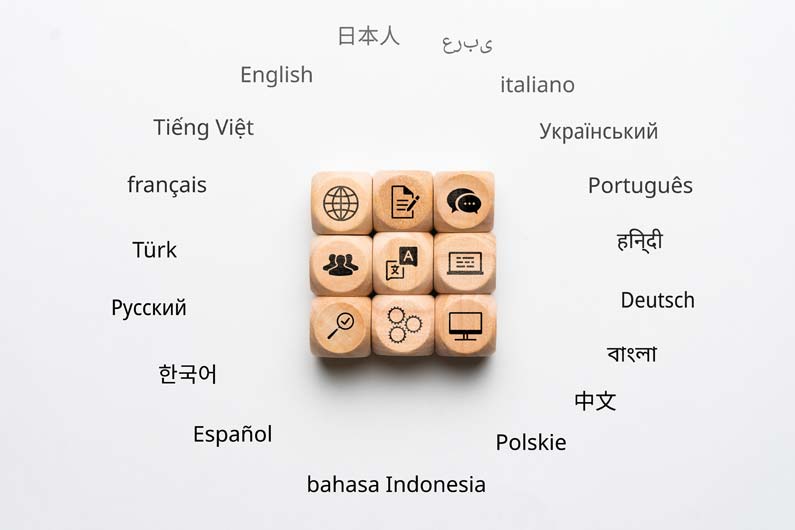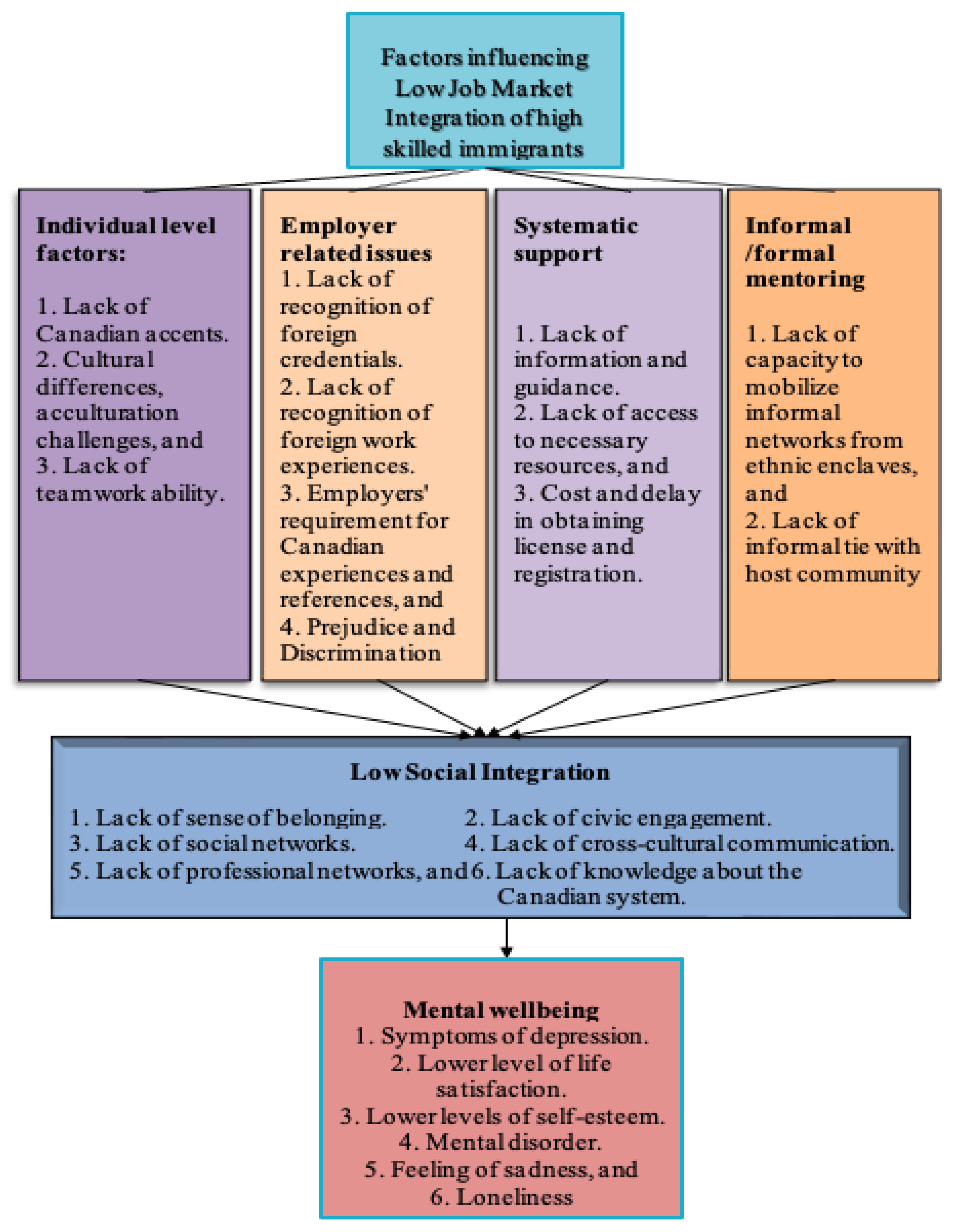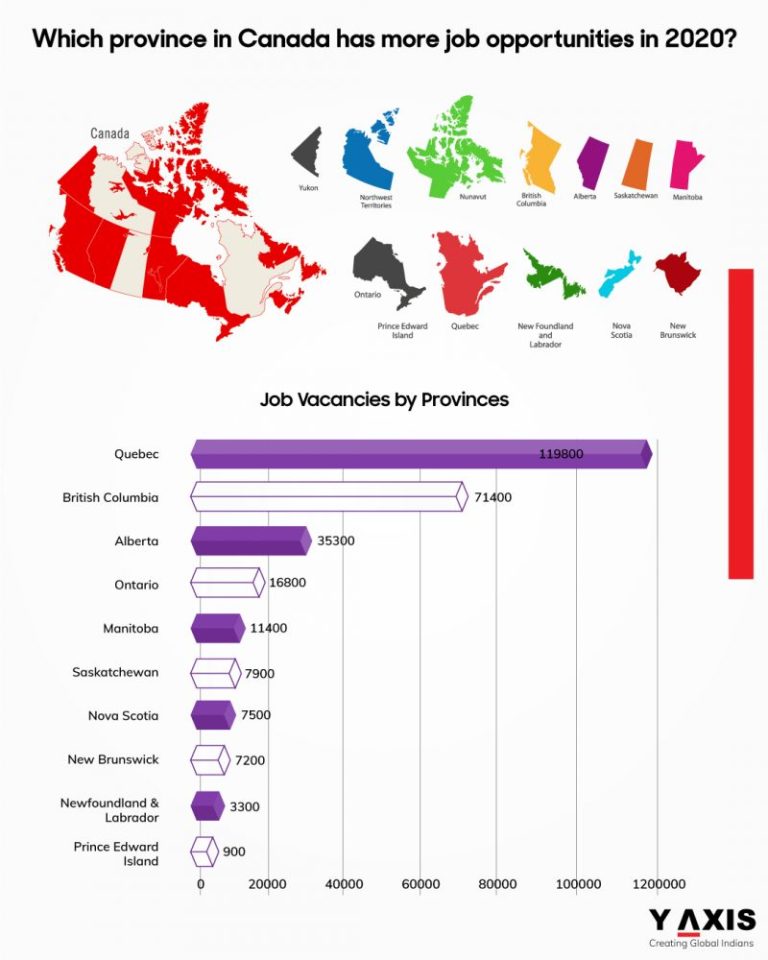How to overcome language barriers in the Canadian job market
Are you looking to navigate the Canadian job market but finding that language barriers are holding you back? In this article, we will explore practical tips and strategies for overcoming language barriers and improving your chances of finding employment in Canada. Whether you are an immigrant, international student, or non-native English speaker, we will provide you with valuable insights to help you succeed in the competitive job market. From language courses and networking events to cultural integration and building confidence, we’ve got you covered. Let’s get started on your path to career success!

Understanding the Language Barrier
Language skills play a crucial role in the Canadian job market. As a newcomer to Canada, it is important to realize the impact that language barriers can have on job opportunities. Without strong language skills, you may face challenges in communicating effectively with employers, colleagues, and clients. This can hinder your chances of securing a job and advancing in your career. It is therefore vital to acknowledge and address the language barrier in order to increase your employability and succeed in the Canadian job market.
The importance of language skills in the Canadian job market
Language skills are highly valued and sought after by employers in Canada. Fluency in English or French, the two official languages of Canada, can significantly enhance your employment prospects. Good language skills are not only important for effective communication with colleagues and clients but also for building professional relationships and understanding workplace culture. Employers often prioritize candidates with strong language skills as it demonstrates their ability to adapt to the Canadian work environment and contribute to the success of the organization.

The impact of language barriers on job opportunities
Language barriers can significantly limit your job opportunities in Canada. Many employers require candidates to have a certain level of language proficiency in order to effectively perform their job duties. They may even specify language requirements in their job postings. If you struggle with language barriers, you may find it difficult to fully understand job requirements and successfully convey your skills and qualifications to potential employers. This can result in missed opportunities and limited job options.
Common challenges faced by immigrants in overcoming language barriers
As an immigrant in Canada, you may face various challenges in overcoming language barriers. Learning a new language can be a daunting task, especially when you are immersed in a new culture and workplace environment. Some common challenges include difficulties in pronunciation and fluency, limited vocabulary, and trouble understanding Canadian accents. Additionally, cultural differences may affect your ability to effectively communicate and understand workplace expectations. It is important to be aware of these challenges and actively seek ways to overcome them.

Improving Language Skills
To overcome language barriers, it is crucial to actively work on improving your language skills. Fortunately, there are various resources and strategies available to help you in this process.
Enrolling in language training programs
One of the most effective ways to improve your language skills is to enroll in language training programs. These programs are specifically designed to help newcomers develop language proficiency in either English or French. They offer structured courses and lessons that focus on all aspects of language learning, including speaking, writing, reading, and listening. By participating in these programs, you can receive professional guidance and support to enhance your language skills.
Attending ESL classes
English as a Second Language (ESL) classes are widely available in Canada and can provide valuable language instruction. These classes cater to individuals who are learning English as a secondary language. Attending ESL classes can significantly improve your language skills and help you gain confidence in speaking and understanding English. These classes typically involve interactive activities, discussions, and assignments that enhance language fluency and comprehension.
Participating in language exchange programs
Language exchange programs offer a unique opportunity to practice your language skills by interacting with native speakers. These programs match individuals who are interested in learning each other’s languages, allowing for conversations and language practice. By engaging in language exchange programs, you can gain firsthand experience communicating in English or French and receive guidance from native speakers. This can greatly improve your language skills and help you overcome language barriers.
Utilizing online language learning resources
The internet provides a wealth of resources for language learning. There are numerous websites, apps, and online courses specifically designed to help individuals improve their language proficiency. These resources often offer interactive exercises, lessons, and language practice opportunities. By utilizing online language learning resources, you can enhance your language skills at your own pace and convenience. It is important to explore different platforms and select the ones that align with your learning style and goals.
Practicing with native speakers
One of the most effective ways to improve your language skills is to practice with native speakers. Engaging in conversations with individuals who are fluent in English or French can greatly enhance your language comprehension, vocabulary, and fluency. Seek opportunities to interact with native speakers, whether through language exchange programs, community events, or networking. Take advantage of these opportunities to practice speaking, listening, and understanding the language in a real-world context.
Building Cultural Awareness
In addition to language skills, developing cultural awareness is crucial for success in the Canadian job market. Understanding Canadian workplace culture and norms can greatly improve your chances of securing employment and thriving in your career.
Understanding Canadian workplace culture
Canadian workplace culture may differ from what you are familiar with in your home country. It is important to learn about the expectations, values, and norms of the Canadian workplace. This includes understanding concepts such as punctuality, teamwork, professionalism, and communication styles. By familiarizing yourself with Canadian workplace culture, you can adapt your behavior and approach to align with the expectations of employers and colleagues.
Participating in cultural integration programs
Many organizations and settlement agencies offer cultural integration programs that provide insights into Canadian culture and workplace practices. These programs often include workshops, seminars, and interactive sessions that help newcomers understand and navigate the Canadian job market. By actively participating in cultural integration programs, you can gain valuable knowledge and skills that will support your integration into the Canadian workplace.
Networking with professionals from diverse backgrounds
Networking is a powerful tool for building connections and expanding your professional opportunities. Engage in networking events and platforms where you can connect with professionals from diverse backgrounds. By networking with individuals who have successfully integrated into the Canadian job market, you can gain valuable insights, advice, and mentorship. Building relationships with professionals who understand the challenges you face can provide guidance and support in navigating the job market and overcoming language barriers.
Engaging in community activities
Participating in community activities can help you develop a sense of belonging and cultural awareness. Joining community organizations, volunteering, and attending cultural events can provide valuable opportunities to interact with people from different backgrounds and enhance your understanding of Canadian culture and society. Additionally, community activities can improve your language skills and expand your network of contacts, further increasing your chances of finding employment and building connections in the Canadian job market.

Tailoring Resumes and Cover Letters
When applying for jobs in the Canadian job market, it is essential to tailor your resumes and cover letters to highlight your language skills and qualifications. This helps demonstrate to employers that you are able to effectively communicate and contribute to their organization.
Highlighting relevant language skills and qualifications
In your resumes and cover letters, emphasize your language skills and qualifications that are relevant to the job you are applying for. Clearly indicate your level of proficiency in English or French, as well as any additional languages you may speak. Highlight any language certifications or courses you have completed, as this demonstrates your commitment to improving your language skills. Additionally, include any experience or qualifications that are specific to the job requirements and showcase your ability to effectively communicate in a professional setting.
Using simple and concise language
When writing your resumes and cover letters, use simple and concise language to effectively convey your skills and qualifications. Avoid using jargon or complex terminology that may be difficult for employers to understand. Write clear and concise sentences that are easy to read and comprehend. This not only showcases your language proficiency but also enhances the readability and impact of your application documents.
Proofreading for grammar and spelling errors
Carefully proofread your resumes and cover letters for grammar and spelling errors. Even small mistakes can create a negative impression and undermine your credibility. Use spell-check tools, grammar-check tools, and seek assistance from native speakers or professional proofreaders to ensure your application documents are error-free. Attention to detail in your language usage demonstrates your commitment to effective communication and professionalism.
Customizing applications for specific job requirements
Avoid using generic resumes and cover letters when applying for jobs. Instead, customize your applications to highlight how your language skills and qualifications align with the specific requirements of the job. Research the organization and job description thoroughly to identify key language-related competencies and incorporate them into your application documents. This tailored approach demonstrates your understanding of the job requirements and how you can contribute to the success of the organization.
Preparing for Job Interviews
Job interviews can be daunting, especially when English or French is not your first language. However, with preparation and practice, you can overcome language barriers and excel in job interviews.
Practicing common interview questions
Prepare for job interviews by practicing common interview questions. Research the types of questions typically asked in interviews for the job role you are applying for, and formulate thoughtful and concise responses. Practice delivering your answers fluently and confidently. This not only improves your language proficiency but also allows you to showcase your skills, experiences, and qualifications effectively.
Improving pronunciation and fluency
Language barriers often stem from difficulties in pronunciation and fluency. Work on improving your pronunciation by listening to native speakers, repeating words and phrases, and seeking feedback from language professionals or native speakers. Additionally, practice speaking with fluency by engaging in conversations with native speakers or language exchange partners. Improving your pronunciation and fluency will greatly enhance your ability to effectively communicate during job interviews.
Using appropriate body language
Non-verbal communication, including body language, plays an important role in interviews. Pay attention to your body language, such as maintaining eye contact, using appropriate hand gestures, and displaying confident posture. This demonstrates your professionalism and engagement in the interview process. Practice using appropriate body language in mock interviews or seek guidance from professionals to ensure you are presenting yourself effectively.
Researching the company and its culture
Thoroughly research the company and its culture before attending job interviews. Familiarize yourself with the organization’s mission, values, and work culture. This information will allow you to tailor your answers and demonstrate your knowledge and interest in the company during the interview. In addition, understanding the company’s culture will help you adapt your communication style and behavior to align with their expectations.
Seeking professional interview coaching
If you are struggling to overcome language barriers in job interviews, consider seeking professional interview coaching. Interview coaches can provide valuable guidance, feedback, and strategies to help you improve your interview skills. They can help you identify areas for improvement and develop strategies to effectively communicate your skills and qualifications. Professional interview coaching can significantly increase your confidence and success in job interviews.

Utilizing Translation and Interpretation Services
In certain situations, it may be necessary to utilize translation and interpretation services to overcome language barriers and ensure effective communication.
Hiring professional translators for resume and cover letter translation
If you are not confident in your language skills or need assistance in accurately translating your resume and cover letter, consider hiring professional translators. Professional translators are skilled in accurately translating documents while preserving the intended meaning and tone. This ensures that your application documents effectively communicate your skills and qualifications to potential employers.
Using language interpretation services during job interviews
During job interviews, language interpretation services can be utilized to facilitate communication between you and the interviewer. Interpretation services provide real-time translation so that you can understand and respond to questions and statements accurately. This helps overcome language barriers and ensures that your responses are effectively conveyed to the interviewer.
Collaborating with translation agencies for official documents
If you have official documents, such as diplomas, certificates, or reference letters, that need to be translated, consider collaborating with translation agencies. Translation agencies have specialized knowledge and expertise in translating official documents while maintaining their legal validity. By working with translation agencies, you can ensure that your official documents are accurately translated and accepted by employers and regulatory bodies.
Networking and Building Connections
Building a strong professional network is crucial for success in the Canadian job market. Networking allows you to connect with professionals, gain industry insights, and access job opportunities.
Joining professional associations
Joining professional associations in your field of expertise can provide invaluable networking opportunities. These associations often organize networking events, conferences, and workshops where you can meet professionals in your industry. By actively participating in these associations, you can expand your professional network, establish connections, and gain industry insights.
Attending industry events and job fairs
Industry events and job fairs are excellent opportunities to network with employers, industry professionals, and potential colleagues. Attend these events to learn about the job market, industry trends, and job opportunities. Prepare your elevator pitch and engage in conversations with employers and professionals to make meaningful connections. Remember to exchange contact information and follow up with individuals you connect with to strengthen your network.
Networking through social media platforms
Social media platforms, such as LinkedIn, offer powerful networking opportunities. Create a professional profile that highlights your skills, experiences, and qualifications. Join industry-specific groups and actively engage in discussions to showcase your expertise and build connections. Connect with professionals in your field and reach out to individuals for informational interviews or mentorship opportunities. By utilizing social media platforms effectively, you can expand your network and access hidden job opportunities.
Establishing relationships with mentors and coaches
Seeking mentors or coaches who can provide guidance and support is invaluable in navigating the Canadian job market. A mentor or coach can offer advice, share industry insights, and provide feedback on your career development. Establishing relationships with mentors and coaches can help you overcome language barriers, gain confidence, and make informed decisions about your career path.
Gaining Canadian Work Experience
Gaining Canadian work experience is highly valued by employers and can significantly enhance your employability. Consider the following options to gain relevant experience in the Canadian job market.
Taking on volunteer opportunities
Volunteering allows you to gain practical experience, build networks, and demonstrate your commitment to contributing to the community. Look for volunteer opportunities in your field of interest that align with your skills and qualifications. Volunteering not only provides you with valuable work experience but also allows you to practice your language skills and enhance your cultural understanding.
Participating in internships or apprenticeships
Internships or apprenticeships are excellent ways to gain hands-on experience in your field while learning from professionals. Many organizations offer internship or apprenticeship programs specifically designed for newcomers to gain Canadian work experience. These programs provide practical training, mentorship, and industry exposure, helping you bridge the gap between education and employment.
Doing part-time or temporary jobs
Consider taking on part-time or temporary jobs to gain Canadian work experience. While they may not be in your desired field, these jobs can provide opportunities to enhance your language skills, adapt to the Canadian work environment, and develop transferable skills. Part-time or temporary jobs can also serve as stepping stones towards securing more permanent positions.
Completing certifications and courses in Canada
Completing certifications and courses in Canada can demonstrate your commitment to continuous learning and professional growth. Research industry-specific certifications, licenses, or courses that are in demand in the Canadian job market. Acquiring these credentials not only enhances your knowledge and skills but also showcases your willingness to adapt to the Canadian workplace. Employers value candidates who invest in their professional development and stay updated with industry trends and advancements.
Seeking Support from Settlement Agencies
Settlement agencies play a vital role in supporting newcomers in their integration into Canadian society and the job market. Seek assistance from settlement agencies to overcome language barriers and access valuable resources and support.
Accessing language and job search support services
Settlement agencies offer various language and job search support services to assist newcomers. These services may include language assessments, language training programs, and job search workshops. Accessing these services can provide you with tailored support to improve your language skills and navigate the job market effectively.
Attending orientation and information sessions
Settlement agencies often organize orientation and information sessions that provide newcomers with essential information about settling in Canada, accessing services, and understanding the job market. Attend these sessions to gain insights into the Canadian job market, learn about available resources, and connect with professionals who can support you in your journey.
Receiving assistance with resume building and interview preparation
Settlement agencies can assist you in building effective resumes and preparing for job interviews. They can provide guidance on showcasing your skills and qualifications, tailoring your application documents, and presenting yourself confidently in interviews. Take advantage of these services to receive personalized support and increase your competitiveness in the job market.
Utilizing mentoring programs
Some settlement agencies offer mentoring programs that pair newcomers with mentors who have successfully integrated into the Canadian job market. Mentors can provide valuable advice, guidance, and support based on their own experiences. Participating in mentoring programs can help you navigate the job market, overcome language barriers, and access potential job opportunities through your mentor’s networks.
Continuous Learning and Self-improvement
To succeed in the Canadian job market, it is important to embrace continuous learning and self-improvement. This mindset allows you to stay competitive, adapt to changing industry trends, and continuously enhance your skills and qualifications.
Engaging in lifelong language learning
Language learning should be viewed as a lifelong journey. Continuously work on improving your language skills even after achieving a certain level of proficiency. Engage in language practice activities, such as reading books, watching movies, or listening to podcasts in your target language. This not only helps you maintain and deepen your language skills but also exposes you to different cultural contexts and vocabulary.
Keeping up with industry trends and developments
Stay updated with industry trends and developments to remain competitive in the job market. Subscribe to industry newsletters, follow relevant blogs or websites, and join professional groups on social media. Actively engage in discussions and stay informed about emerging technologies, best practices, and industry challenges. Demonstrating your market awareness and adaptability can greatly enhance your employability.
Attending workshops and seminars
Workshops and seminars offer valuable opportunities for professional development and networking. Look for workshops and seminars in your field of interest that focus on relevant topics and skills. Attending these events not only allows you to acquire new knowledge and insights but also provides opportunities to connect with industry professionals and expand your network.
Seeking feedback and constructive criticism
Be open to receiving feedback and constructive criticism on your language skills and professional abilities. Actively seek feedback from language professionals, mentors, colleagues, or interviewers to identify areas for improvement. Constructive feedback helps you address weaknesses and refine your language proficiency and professional skills. Embracing feedback as an opportunity for growth contributes to your continuous learning and self-improvement.
Developing personal learning strategies
Develop personal learning strategies that cater to your learning style and goals. Experiment with different techniques, such as flashcards, language apps, or conversation exchanges, to determine what works best for you. Set specific language learning goals, such as improving vocabulary or pronunciation, and track your progress. Regularly evaluate and adjust your learning strategies to maximize your language learning outcomes.
By understanding the language barrier, improving language skills, building cultural awareness, tailoring resumes and cover letters, preparing for job interviews, utilizing translation and interpretation services, networking and building connections, gaining Canadian work experience, seeking support from settlement agencies, and embracing continuous learning and self-improvement, you can successfully overcome language barriers in the Canadian job market. Embrace the opportunities and resources available to you and approach the job market with confidence and determination. Your language skills and determination to succeed will undoubtedly contribute to your professional growth and success in Canada. Best of luck!







